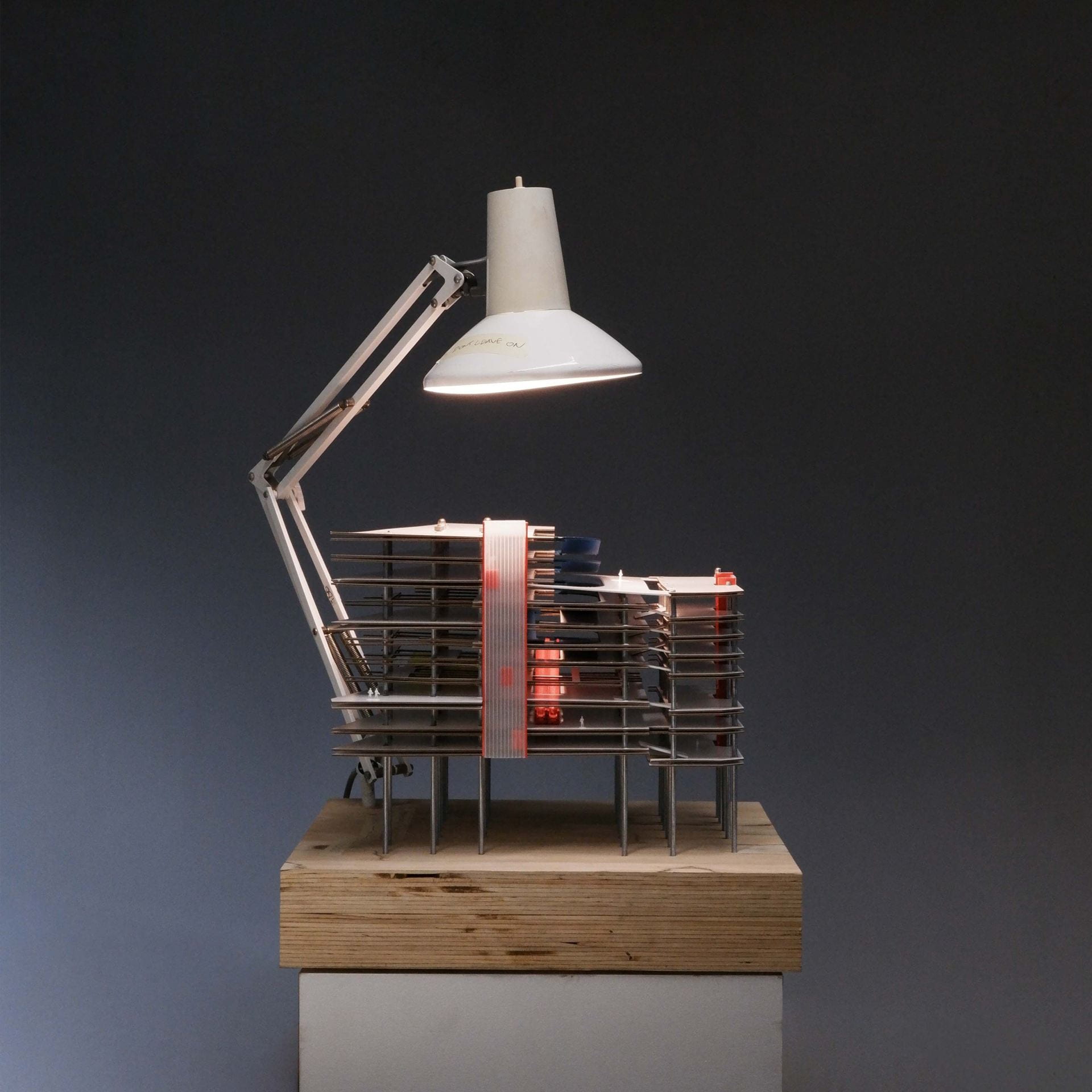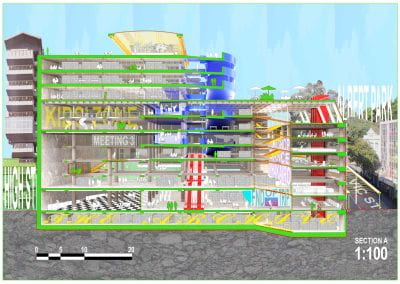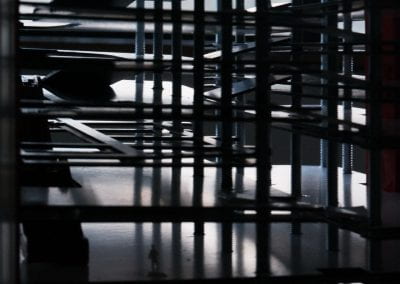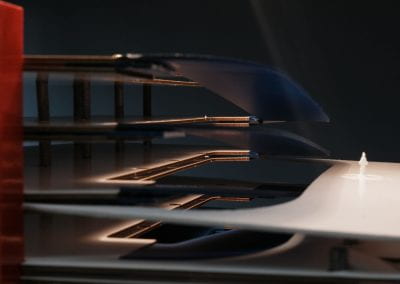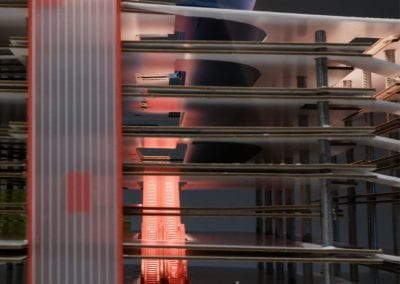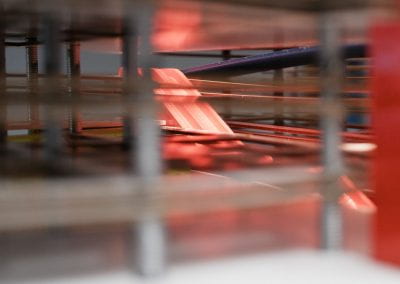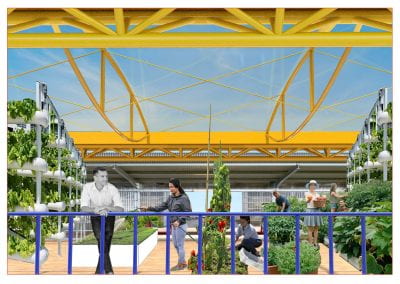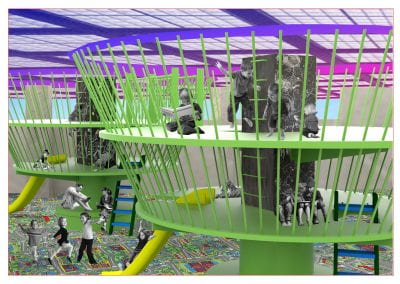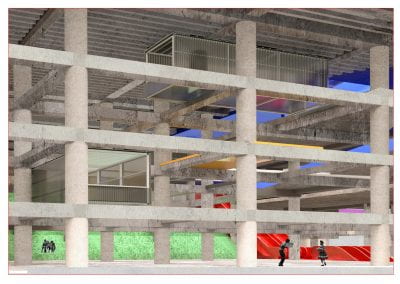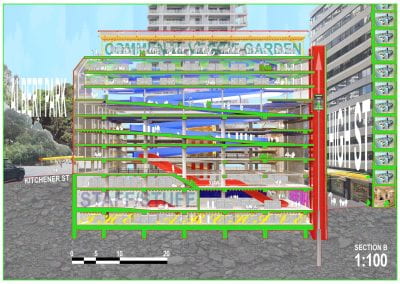In the age of digitization, the value of the library is called into question. When we believe a hard drive can replace an entire library floor and wifi access can connect you to the scope of human knowledge, it is easy to condemn this institution as an outdated model of information storage. The library of the future must offer more to the public than books. As Shannon Mattern writes, our mistake is that we have “equated the library with the smartphone,” naively overlooking the social and cultural impacts that a library can have on its surrounding community.
The library of the future houses knowledge in forms beyond the written and recorded. While the western world prioritises knowledge that has been published, printed and hard bound, populations across the world have retained and shared their cultural knowledge throughout generations via artistic mediums such as oral storytelling, food, carving, lashing, art, song and dance. Within this proposed typology, spaces are equally dedicated to the communication of embodied knowledge as it is to the book and computer. The library of the future hosts vessels of knowledge old and new, it is a democratic and dialectic database.
With the construction of the City Rail Link, Aotearoa’s largest infrastructure project to date, Tamaki Makaurau’s central business district sees liberation from the dominant petro-culture. As personal motor vehicles in the central city become few and far between and High street is declared a pedestrian only zone, Victoria Street Carpark is adapted to house this new library space. Importance must then be given to fostering social and cultural engagement within the urban fabric, with an effort to welcome and accommodate all members of the public, including the street community.
The library of the future houses knowledge in forms beyond the written and recorded. While the western world prioritises knowledge that has been published, printed and hard bound, populations across the world have retained and shared their cultural knowledge throughout generations via artistic mediums such as oral storytelling, food, carving, lashing, art, song and dance. Within this proposed typology, spaces are equally dedicated to the communication of embodied knowledge as it is to the book and computer. The library of the future hosts vessels of knowledge old and new, it is a democratic and dialectic database.
With the construction of the City Rail Link, Aotearoa’s largest infrastructure project to date, Tamaki Makaurau’s central business district sees liberation from the dominant petro-culture. As personal motor vehicles in the central city become few and far between and High street is declared a pedestrian only zone, Victoria Street Carpark is adapted to house this new library space. Importance must then be given to fostering social and cultural engagement within the urban fabric, with an effort to welcome and accommodate all members of the public, including the street community.
